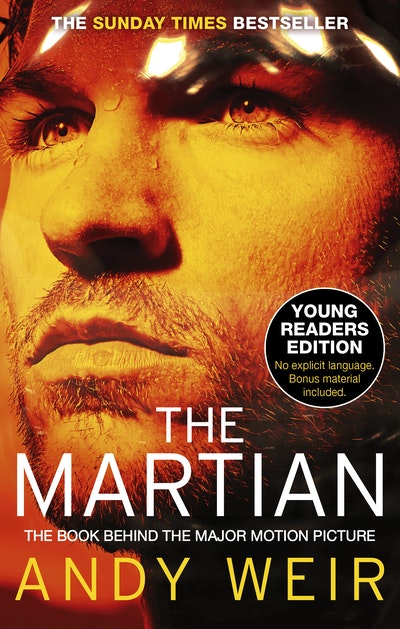The Martian author comes clean on his sci-fi publishing phenomenon.
You list space travel, orbital dynamics, relativistic physics, astronomy, and the history of manned spaceflight among your interests. How did you incorporate these passions into your debut novel, The Martian?
Those interests allowed me to come up with the story in the first place. I love reading up on current space research. At some point I came up with the idea of an astronaut stranded on Mars. The more I worked on it, the more I realized I had accidentally spent my life researching for this story. Early on, I decided that I would be as scientifically accurate as possible. To a nerd like me, working out all the math and physics for Mark’s problems and solutions was fun.
Explain how the science in The Martian is true to life.
The basic structure of the Mars program in the book is very similar to a plan called ‘Mars Direct’ (though I made changes here and there). It’s the most likely way that we will have our first Mars mission in real life. All the facts about Mars are accurate, as well as the physics of space travel the story presents. I even calculated the various orbital paths involved in the story, which required me to write my own software to track constant-thrust trajectories.
What inspired you to write The Martian?
I was thinking about how best to do a manned Mars mission. As the plan got more detailed, I started imagining what it would be like for the astronauts. Naturally, when designing a mission, you think up disaster scenarios and how likely the crew would be to survive. That’s when I started to realize this had real story potential.
Are you an advocate for a manned mission to Mars? Are you hopeful we’ll actually make it out there sometime soon?
Of course I’m a huge fan of space travel, manned and unmanned. I would love to see people land on Mars in my lifetime. However, do I think it will actually happen? I’m not sure. Unlike the 1960s, we’re not in a race with anyone to get there, so it’s not a priority. Also, computer and robotics technologies are leaps and bounds better than they were during the days of Apollo. So, logically, you have to ask why we would risk human lives rather than just make better robots. Still, it would be awesome, and maybe that’s reason enough.
Do you have anything in common with your wise-cracking hero Mark Watney?
I’m the same level of smart-ass as he is. It was a really easy book to write; I just had him say what I would say. However, he’s smarter than I am and considerably more brave.
How long do you think you’d last if you were left in Mark Watney’s position?
Not long at all. I don’t know how to grow crops, nor how to jury-rig the solutions he came up with. It’s a lot easier to write about an ordeal than it is to experience it.
You have the chance to meet any astronaut living or dead: Who is it and why?
John Young. He is the quintessential astronaut. Competent, fearless, highly intelligent, and seemingly immune to stress. When Apollo 16 launched, his heart rate never got higher than 70. Most astronauts spike to at least 120 during launches.
How did you feel when your original, self-published version of The Martian became a phenomenon online? Were you expecting the overwhelmingly positive reception the book received?
I had no idea it was going to do so well. The story had been available for free on my website for months, and I assumed anyone who wanted to read it had already read it. A few readers had requested I post a Kindle version because it’s easier to download that way. So I went ahead and did it, setting the price to the minimum Amazon would allow. As it sold more and more copies, I just watched in awe.
Did you ever imagine in a million years your self-published book would become a major motion picture? What was your reaction when you first heard the news? How did you feel when you saw that first movie trailer hit the Internet?
Obviously, I’m thrilled about it! I daydreamed about The Martian becoming a movie someday, but I didn’t take the concept seriously. Even when Fox optioned the rights, I figured they were just making a minor speculative investment. Then the big names started to get involved and it suddenly got more real. Next thing I knew, they had a top-notch cast and one of the greatest directors of all time [Ridley Scott] on the project. Every part of this publishing experience has been a dream come true!
You’re stranded on Mars and you can take only one book with you. What is it?
It’s always hard to pick one ‘favorite book.’ Growing up, I loved early Heinlein books most of all. So if I had to pick one, I’d go with Tunnel in the Sky. I do love a good survival story.
This is a selection of questions taken from bonus material included in the Young Readers Edition of Andy Weir’s The Martian.













